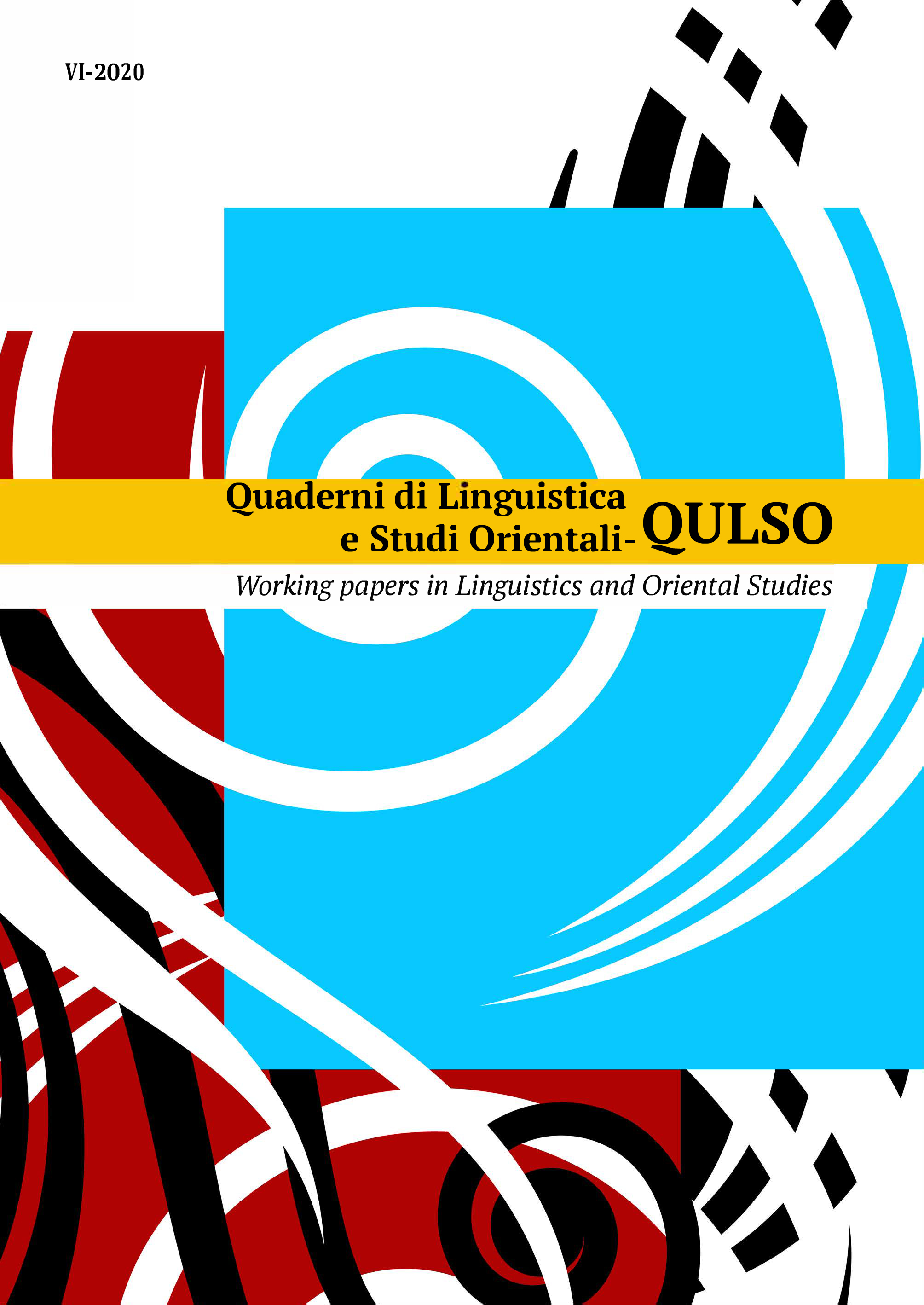Published 2020-09-10
Keywords
- Adverbs,
- Discourse Particles,
- Implicatures,
- Scalarity,
- Semantic-pragmatic interface
How to Cite
Abstract
The aim of this paper is to demonstrate that the several uses of the Italian adverbial magari (the optative, short answer, hypothetical, concessive and imperative uses) can be led back to one basic core meaning. This core meaning is taken to account for all the uses of the item without reference to a grammaticalization process, but only through syntactic and pragmatic operations such as ellipsis, scope variability and pragmatic interpretation on the part of the hearer. Magari first appears in Italian optative constructions, which are characterised by the presence of a scalar reading along an epistemic dimension. The expansion of the uses of magari is explained in terms of its additive properties (i.e. need for other propositions to be true within the Common Ground) plus a requirement that the propositional content be higher than a contextually given threshold along an epistemic scale.



